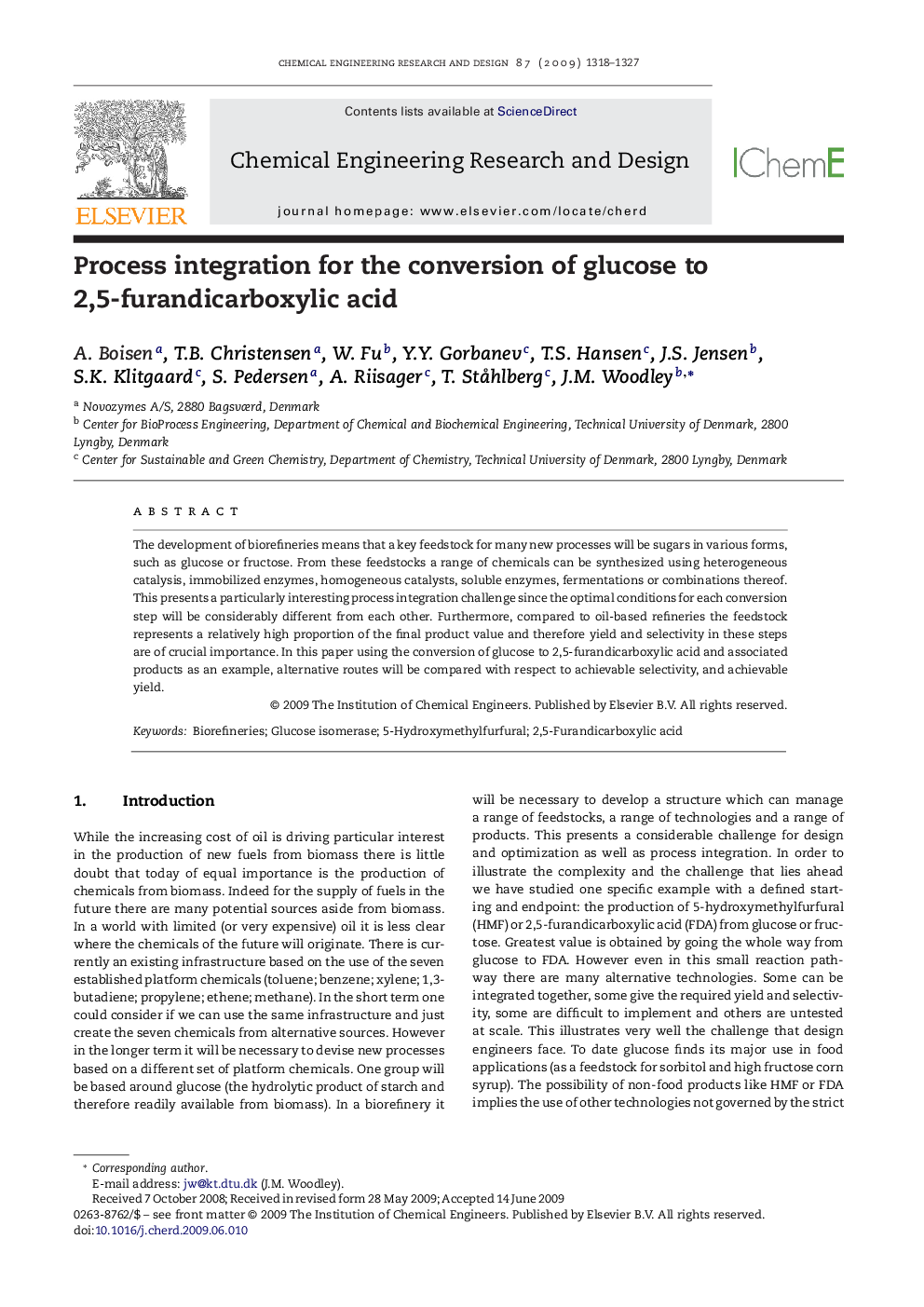| Article ID | Journal | Published Year | Pages | File Type |
|---|---|---|---|---|
| 621087 | Chemical Engineering Research and Design | 2009 | 10 Pages |
The development of biorefineries means that a key feedstock for many new processes will be sugars in various forms, such as glucose or fructose. From these feedstocks a range of chemicals can be synthesized using heterogeneous catalysis, immobilized enzymes, homogeneous catalysts, soluble enzymes, fermentations or combinations thereof. This presents a particularly interesting process integration challenge since the optimal conditions for each conversion step will be considerably different from each other. Furthermore, compared to oil-based refineries the feedstock represents a relatively high proportion of the final product value and therefore yield and selectivity in these steps are of crucial importance. In this paper using the conversion of glucose to 2,5-furandicarboxylic acid and associated products as an example, alternative routes will be compared with respect to achievable selectivity, and achievable yield.
